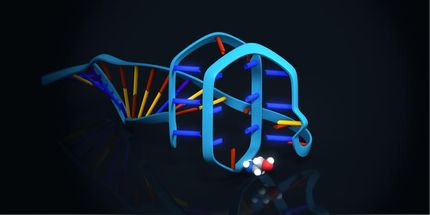Crompton Donates Compound to the Aaron Diamond AIDS Research Center for Development as Potential Anti-HIV Therapeutic
Advertisement
Crompton Corporation (NYSE:CK) and The Aaron Diamond AIDS Research Center (ADARC) today announced that Crompton has donated certain intellectual property rights for its UC 781 compound to ADARC for development as a possible anti-HIV therapeutic.
UC 781 was originally developed by Crompton scientists to combat pathogenic fungi in crops. The company regularly tests chemicals for pharmaceutical activity through an arrangement with the National Cancer Institute, which found that precursors of UC 781 demonstrated potential activity against HIV, the virus that causes AIDS. Crompton scientists, in consultation with experts at the Rega Institute in Belgium and McGill University in Canada, have worked to develop UC 781 for the treatment of patients with HIV/AIDS and for the prevention of transmission of the virus to the uninfected.
"We hope UC 781 will become an important tool in the arsenal of drugs used to control HIV," said Dr. David D. Ho, M.D., director of The Aaron Diamond AIDS Research Center and professor of The Rockefeller University. "ADARC will explore the drug's systemic uses, both as a therapeutic for those already infected with HIV, and as a post-exposure prophylactic that may help prevent HIV infection. UC 781 is a potent compound that can be produced less expensively than others, meaning, we hope, that it may be particularly promising for use in the developing world, where the HIV/AIDS epidemic rages. We are grateful to Crompton for giving us the opportunity to develop this promising compound."
"We are pleased to be associated with a scientist of Dr. Ho's caliber and believe that he and his team at ADARC are well poised to develop UC 781 to its fullest therapeutic potential," said Edward L. Hagen, Ph.D., senior vice president, strategy and development, for Crompton Corporation.
Crompton also recently announced a worldwide exclusive licensing agreement with Biosyn, Inc. for the development of UC 781 as a topical microbicide targeted against HIV. UC 781 inhibits a segment of the HIV lifecycle called reverse transcriptase and inactivates HIV particles, making it a particularly promising candidate for development as a microbicide. Separately, Crompton plans to use its rubber and urethane expertise to explore other applications for UC 781, such as an antiviral barrier in medical gloves. HIV: The Worldwide Epidemic Continues
Within the last decade the spread of human immunodeficiency virus type-1 (HIV-1) has become a devastating worldwide epidemic. Commonly referred to as HIV, the virus gradually leads to acquired immunodeficiency syndrome (AIDS). As a result, the body's immune system is weakened and left vulnerable to various diseases.
Combination drug therapy, which was pioneered by researchers at the ADARC along with others, has helped reduce the death rate of HIV in the United States and Western Europe to one fifth of what it once was. Yet the epidemic continues, and United Nations AIDS officials and the World Health Organization estimate that 5.3 million people worldwide were newly infected with HIV in 2000, bringing the total number of people living with HIV/AIDS to 36.1 million. About Crompton


































































